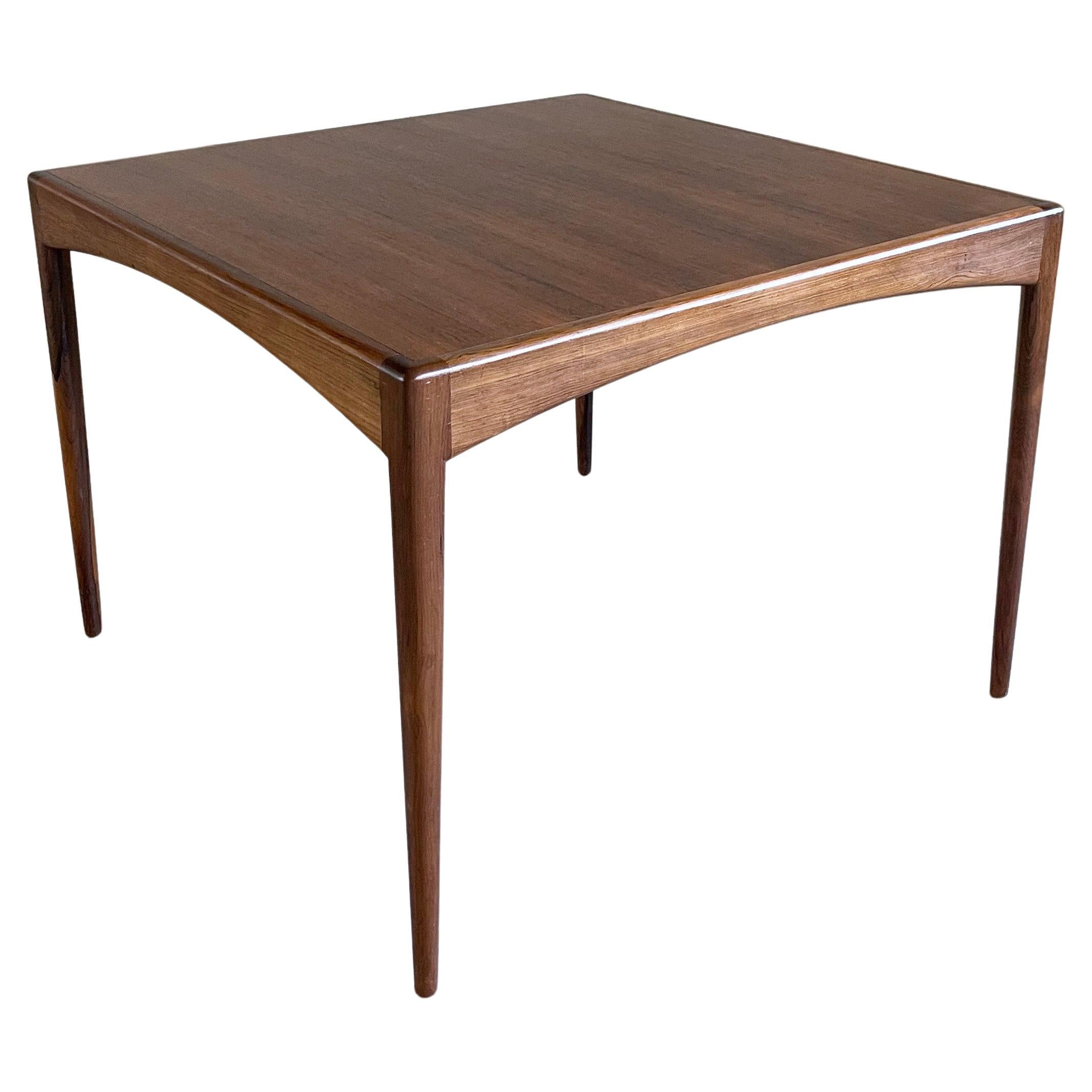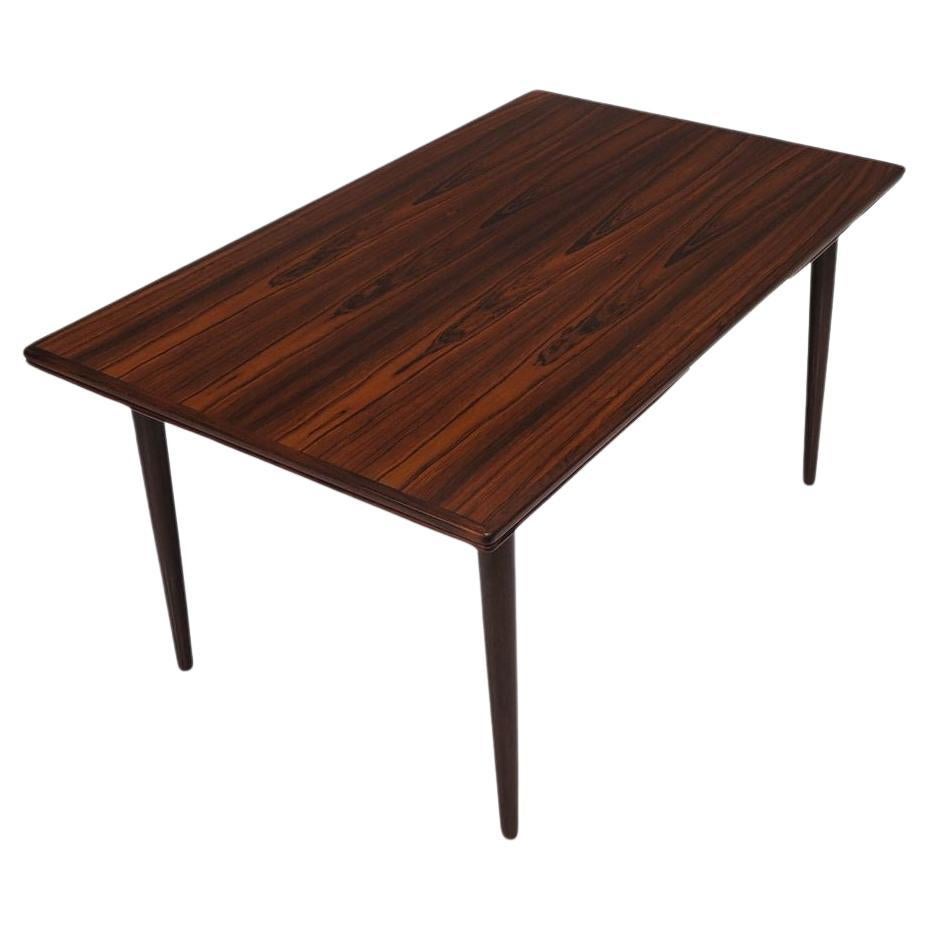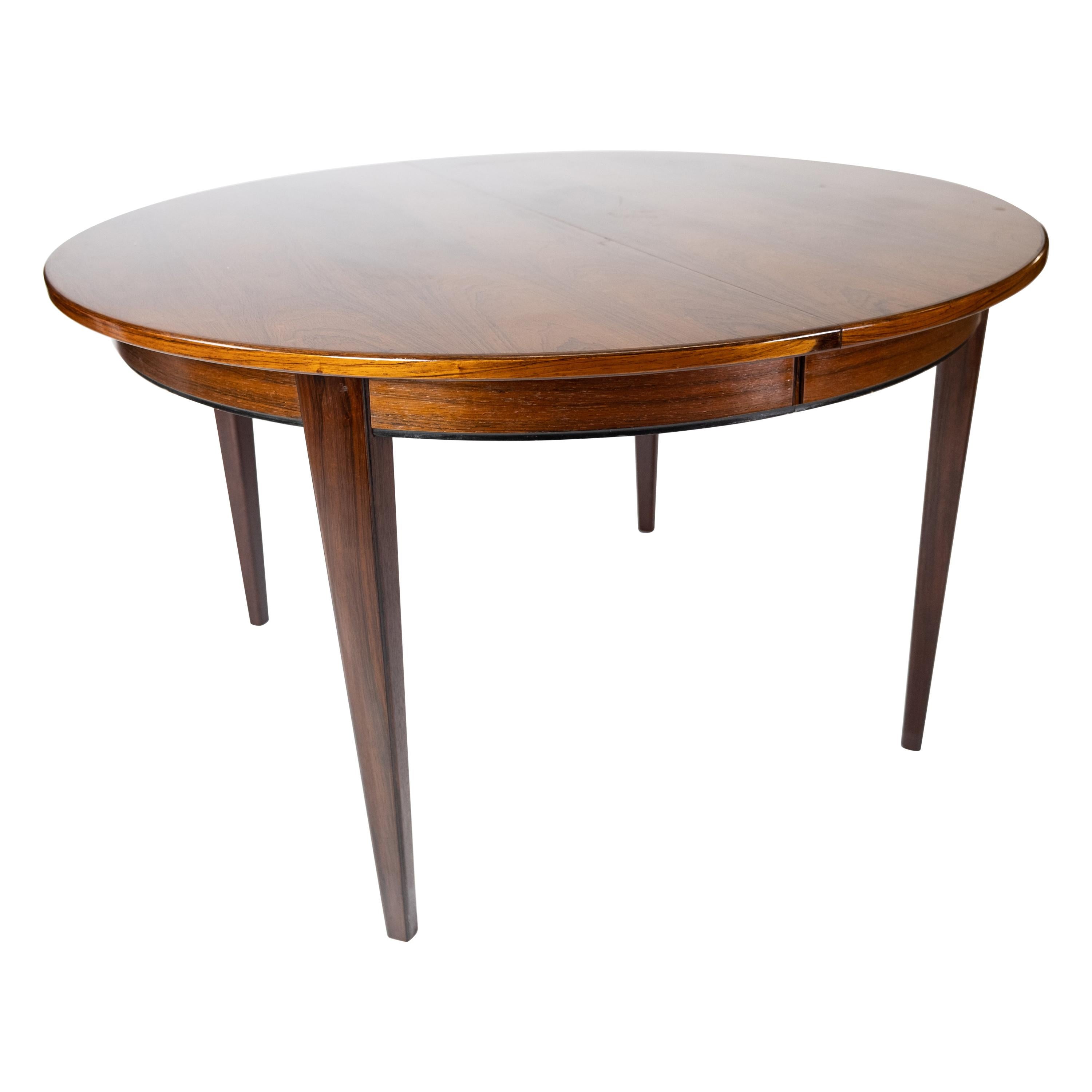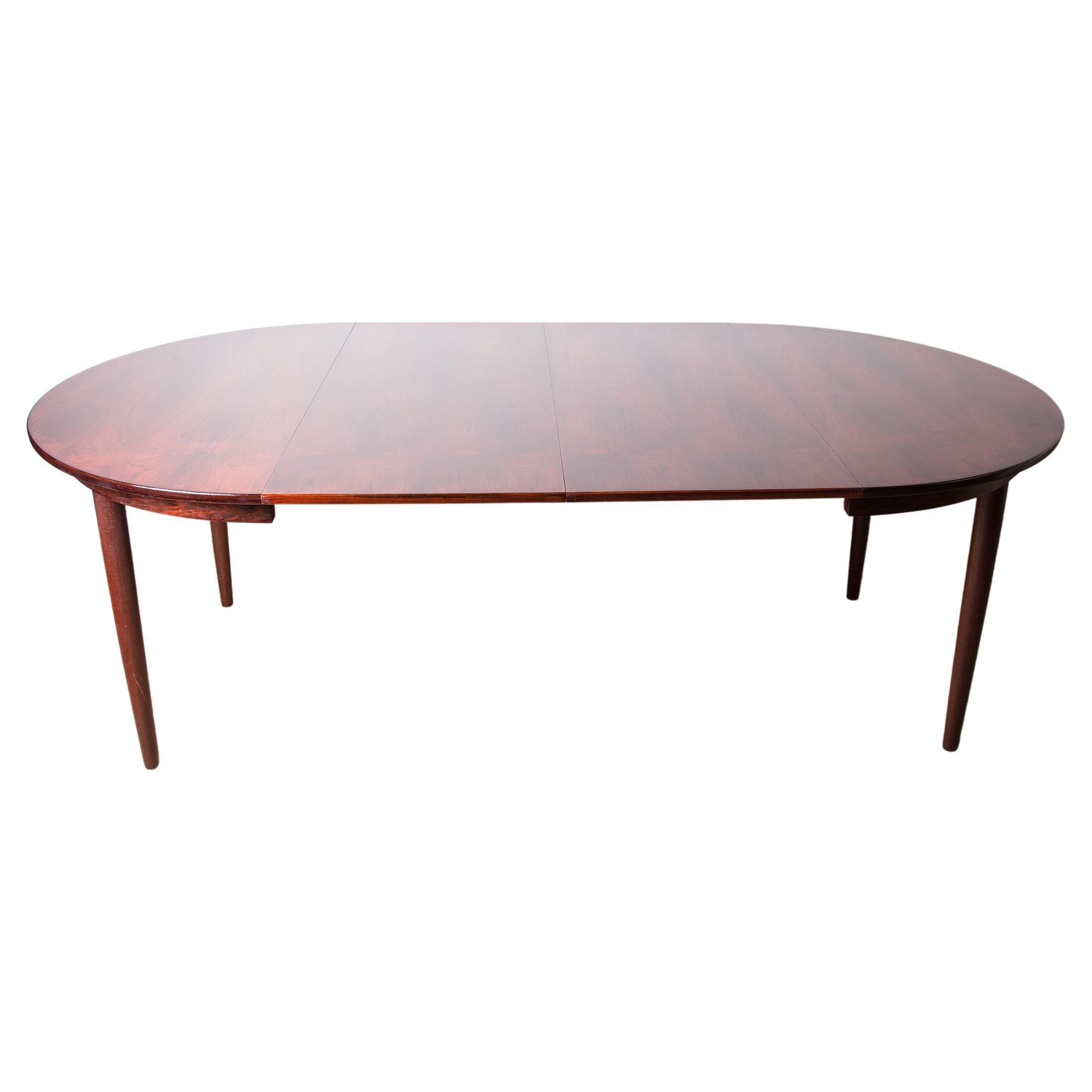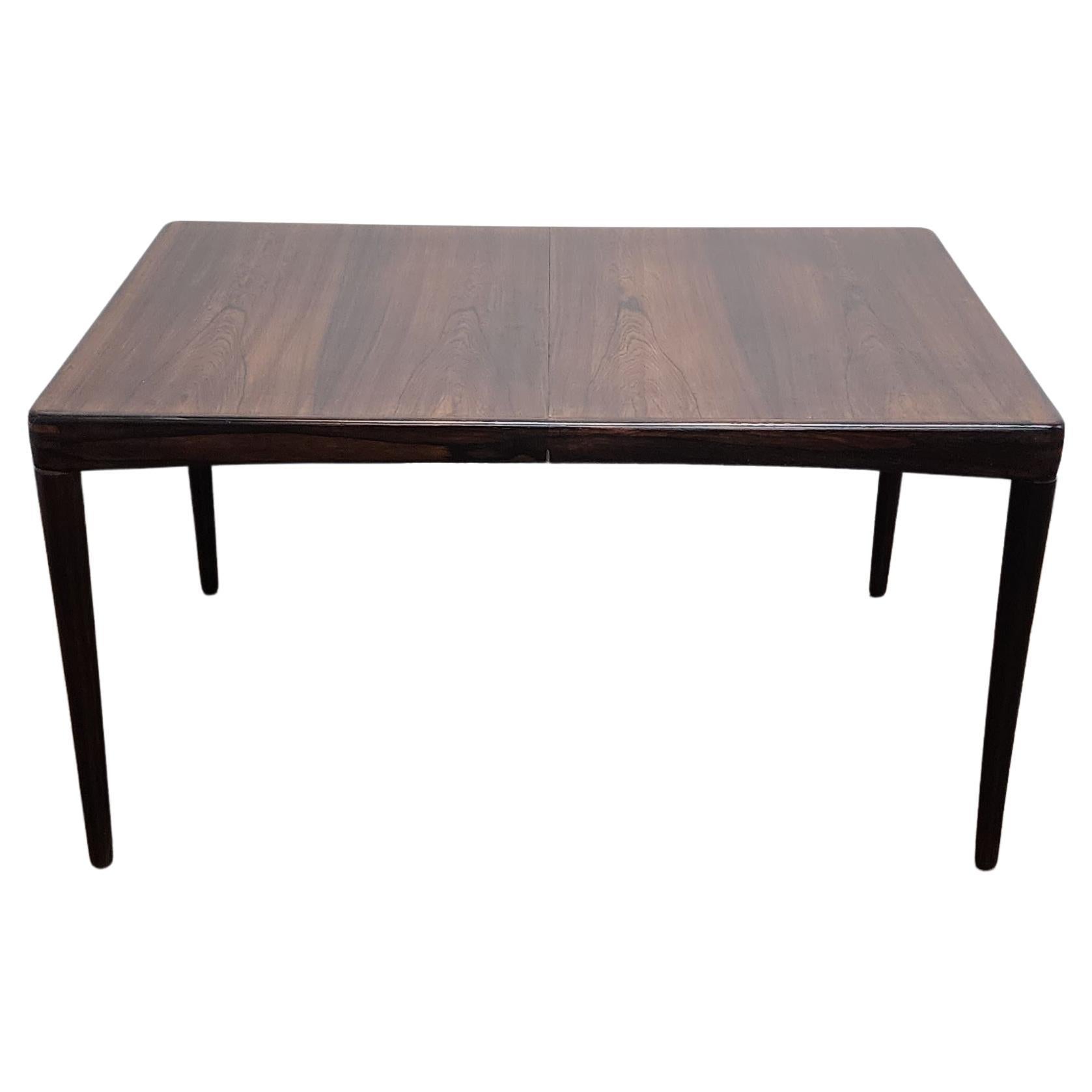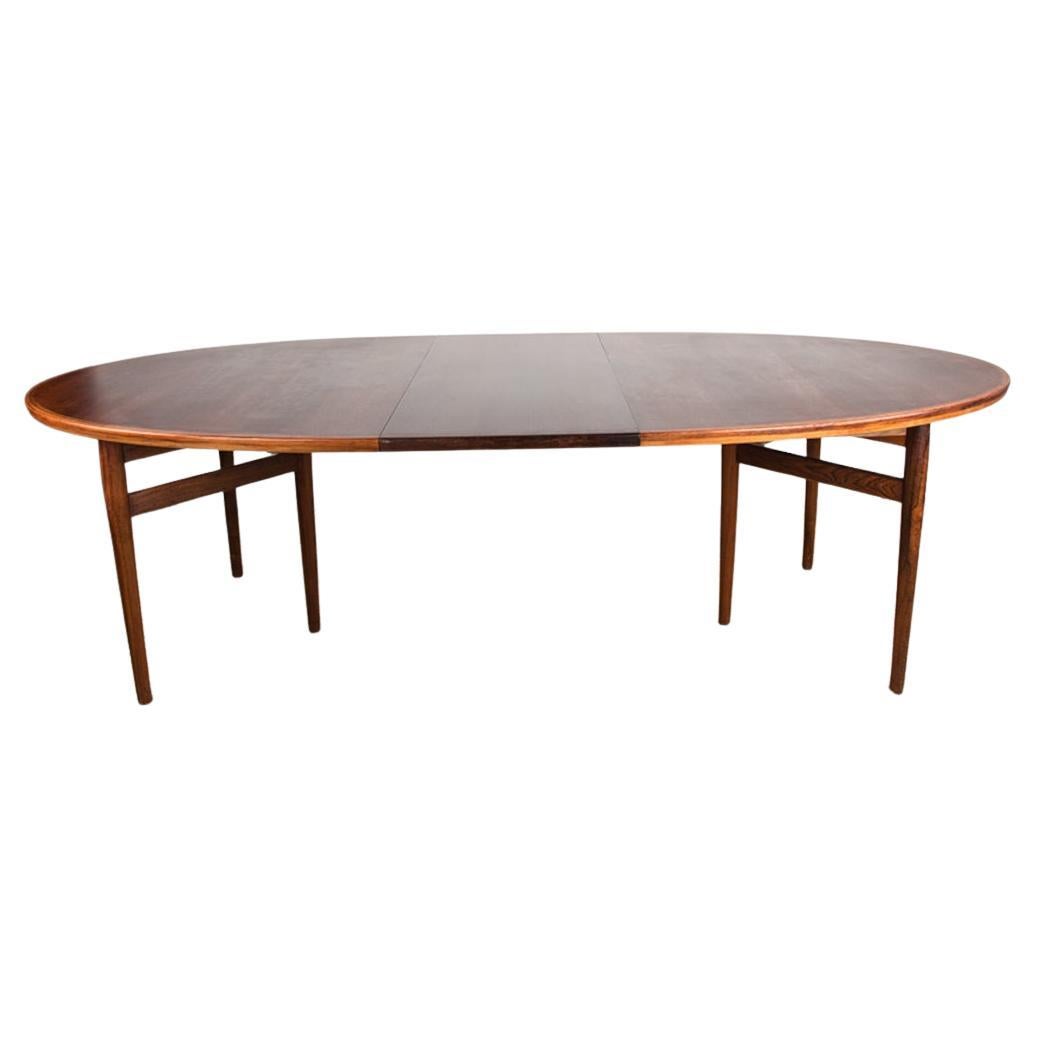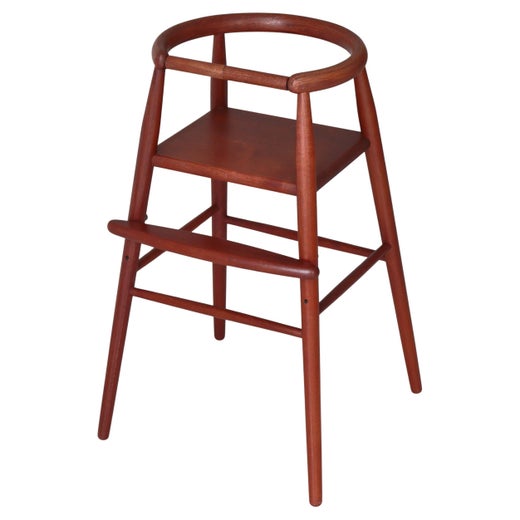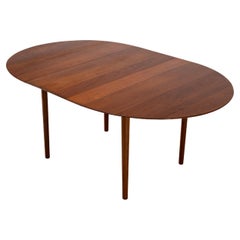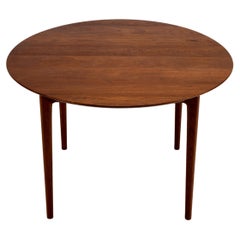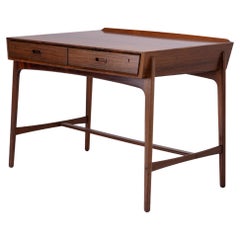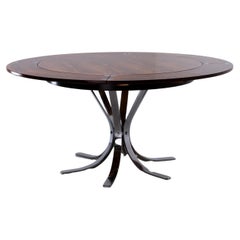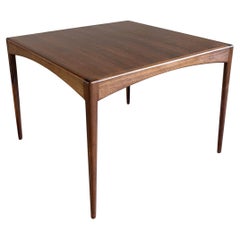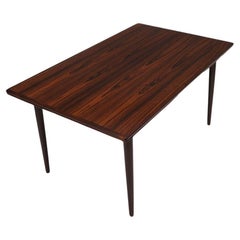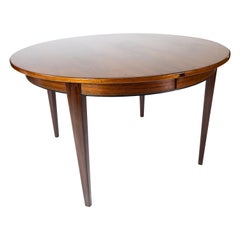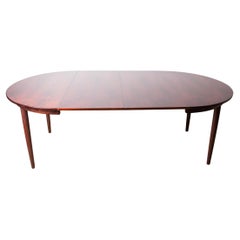Nanna Ditzel Rosewood Extending Dining Table for Soren Willadsen, Denmark
About the Item
- Creator:Nanna Ditzel (Designer),Soren Willadsen Mobelfabrik (Cabinetmaker)
- Dimensions:Height: 27.56 in (70 cm)Width: 90.56 in (230 cm)Depth: 35.44 in (90 cm)
- Style:Scandinavian Modern (Of the Period)
- Materials and Techniques:
- Place of Origin:
- Period:
- Date of Manufacture:1963
- Condition:Refinished. Wear consistent with age and use. At Gallery Kiy, all our pieces have been professionally restored using museum grade restorers and are always presented in the best condition they can be in. If there are any flaws that stands out, they will be described and photographed.
- Seller Location:Uxbridge, GB
- Reference Number:1stDibs: LU9085237736062
Nanna Ditzel
Nanna Ditzel was the most versatile and creative female designer that Denmark produced in the 20th century. Ditzel brought her talents to bear on a staggering array of forms — she designed furniture, jewelry, tableware and textiles; and she shaped her pieces using an equally astonishing variety of materials, from wood and wicker to silver, ceramics and fiberglass.
Born in Copenhagen, she trained as a cabinetmaker at the Royal Academy's furniture school — overseen by the great craftsman of the day, Kaare Klint — and graduated in 1943. Ditzel’s early work adhered to the classic Danish modernist tenets of simplicity, comfort and quality, and her armchairs, with their softly curved backrests are much in the spirit of Hans Wegner. Ditzel’s signature piece of that time is her Ring chair. Designed along with her husband, Jørgen Ditzel, a fabric maker, the chair has a semicircular padded armrest that seems to embrace the sitter. Ditzel began designing in wicker and in 1959 produced the Hanging chair. The piece, suspended from the ceiling by a chain, became a favorite for fashion shoots and may be as iconic of the 1960s as Eero Aarnio’s plastic Ball chair of 1963.
In 1956, Ditzel began designing for the Danish silverware firm Georg Jensen. In an association that lasted some 40 years, Ditzel would create organically shaped jewelry, barware, ceramic tableware and even tablecloths. Like her fellow Dane Verner Panton, Ditzel was not afraid to embrace industrial materials, and she began designing fiberglass chairs in the mid-1960s. Some of her most flamboyant work came toward the end of her career, in pieces such as 1989’s Bench for Two, with its shocking Op-art finish, or the Trinidad chair of 1992, with it’s sunburst-like, cut-though backs. Such feats of creativity were a fitting coda to one of the most imaginative, prolific and remarkable women of modern design.
- ShippingRetrieving quote...Shipping from: Uxbridge, United Kingdom
- Return Policy
More From This Seller
View AllMid-20th Century Danish Dining Room Tables
Teak
Mid-20th Century Danish Scandinavian Modern Tables
Brass
Mid-20th Century Danish Mid-Century Modern Desks and Writing Tables
Rosewood
Mid-20th Century Danish Mid-Century Modern Dining Room Tables
Steel
Mid-20th Century Danish Side Tables
Glass, Rosewood
20th Century Danish Dining Room Tables
Rosewood
You May Also Like
Mid-20th Century Danish Mid-Century Modern Dining Room Tables
Wood
Mid-20th Century Danish Scandinavian Modern Dining Room Tables
Rosewood
Vintage 1960s Danish Scandinavian Modern Dining Room Tables
Rosewood
Vintage 1960s Danish Scandinavian Modern Dining Room Tables
Rosewood
Vintage 1960s Danish Scandinavian Modern Dining Room Tables
Rosewood
Vintage 1960s Danish Scandinavian Modern Dining Room Tables
Rosewood
